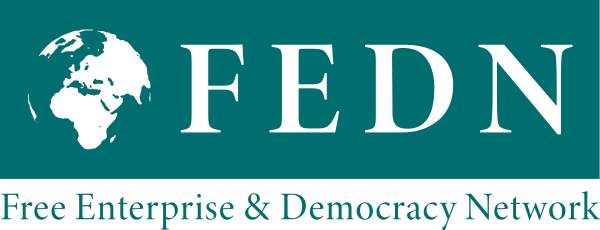Event Recap: Economic Informality – Crisis, Recovery, and Collective Action
On April 6th, CIPE and FEDN held a virtual event “Economic Informality – Crisis, Recovery, and Collective Action.” For those who were able to able, we hope you found the discussion dynamic and informative.
The roundtable discussion, moderated by CIPE’s Director of Policy & Program Learning Kim Bettcher, featured FEDN members Slim Othmani and Marina Stadthagen as panelists as well as Todor Yolamov, a Non-resident Fellow at the Center for the Study of Democracy. We are grateful for their excellent contributions.
The panelists addressed the current moment of crisis for informal entrepreneurs and businesses: the pandemic has hit every economy hard but has been especially intense for unincorporated enterprises lacking social protections. The panelists discussed the need for recoveries inclusive of the informal sector and sensitive to its needs in addition to the importance of considering informality as part of the entire economy instead of a separate economy. Panelists drew examples from their regional and country expertise to provide important insight into the current state of the informal sector.
Key Takeaways:
- Most of the informal sector did not receive public support during the pandemic
- Some formal enterprises could not cope with both the pandemic’s economic shock and high taxes or fees and became informal to stay solvent
- There is a lack of information about how to transition to formalization
- The public sector should deepen its relationships with informal sector leaders to facilitate public-private dialogue
- There are eight common reasons for informality: Politics; Economics; Fiscal Conditions; Social Conditions; Demographics; Education; Religion; and the “Hidden Hand.”
- There may be a need for many governments to create independent institutions to work with the informal sector
- Despite a rise in unemployment in the informal sector, some enterprises have benefited from the pandemic by developing an online strategy and innovative products
- Complete formality is impossible, so we must think about how to improve conditions without forcing formalization
For continued reading on the topic, we have compiled several pieces to inspire continued thinking and critical analysis of the points raised by the panelists.
- Ruslan Stefanov, Daniela Mineva, and Petar Terziev (Center for the Study of Democracy): “Contributions to the European Platform Tackling Undeclared Work“
- Center for the Study of Democracy: “Hidden Economy in Southeast Europe: Building Regional Momentum to Mitigate its Negative Effects“
- Kim Bettcher (CIPE): “Opportunities to Reduce Economic Informality“
- Kim Bettcher and Adam Goldstein (CIPE): “The Informal Sector: Facing Crisis on the Outside of the System“
- Adam Goldstein (CIPE): “Investigating Intersections: Spatial-Inequality, Incentives, and Informality“; “Steps to Help the Underground Economy Survive a Pandemic“; “Building Capacity for Women in the Informal Economy“
